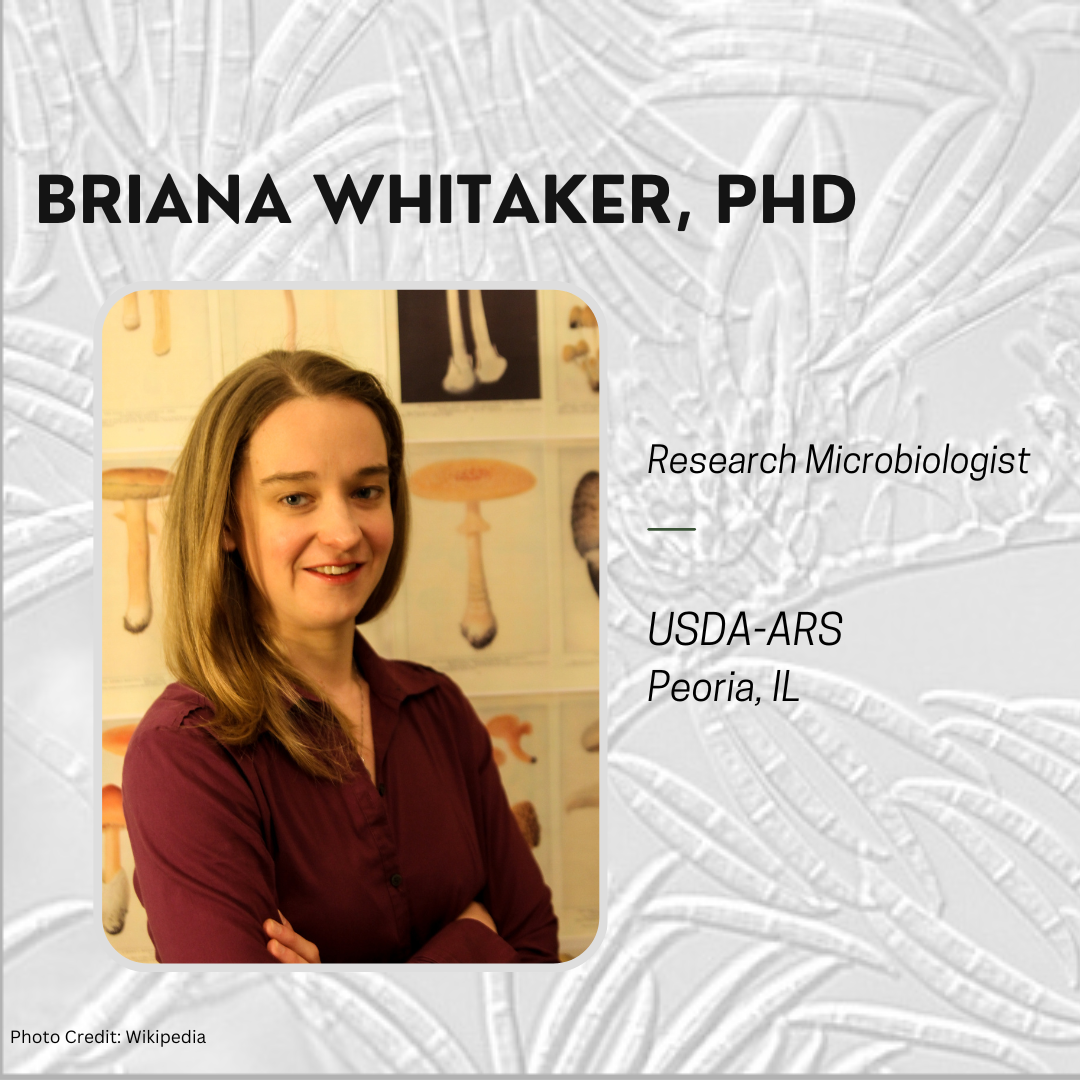Featured Researcher Bio - Briana Whitaker 2025

Meet Briana Whitaker, a research microbiologist at the USDA-ARS National Center for Agricultural Utilization Research in Peoria, Illinois. Whitaker has been a PI with the USWBSI since 2021 and is currently a member of the FHB Management research area committee. Her projects focus on studying the distribution of Fusarium spp. diversity and their mycotoxin production throughout the midwestern and southeastern U.S. and identifying microbiota which can be used in barley genetics to enhance FHB resistance.
Inspiring the Study of Microbiomes
Whitaker grew up in a small town in North Carolina. She received her bachelor’s degree in biology from North Carolina State University at Chapel Hill. During this time, she worked in a lab studying Barley Yellow Dwarf Virus (BYDV) in wild grass systems. Her time in the BYDV lab with Megan Rua and Charles Mitchell prepped her for graduate school and gave her the support she needed to figure out what she wanted to study. Rua’s mentorship had the biggest influence on Whitaker’s approach to tackling scientific questions and developing hypothesis. She learned how to think critically when designing experiments that could answer biological questions and use statistics to answer those questions. Rua also taught Whitaker to use the statistical software R, which has turned out to be very useful in her career. After graduation, she took some time off from her studies and worked as a field technician in a switchgrass genomics lab in Texas. In 2018, she completed her doctorate degree at Indiana University. She then worked as a post-doctoral researcher at North Carolina State University. Her doctorate degree and post-doctoral experience inspired her to pursue the use of crop microbiomes as a method of defense against plant pathogens to improve agronomic sustainability.
In 2020, Whitaker started as a research microbiologist at the USDA-ARS and was immediately connected with researchers that were pursuing similar scientific questions to her own. She submitted a pre-proposal to the USWBSI’s Transformational Science research category in 2021, and since then has been a part of the USWBSI community in both the FHB Management and Pathogen Biology and Genetics Research Areas.
Fostering Productivity Through Collaboration
Being a part of the USWBSI means being a part of a larger group of FHB researchers whose goals are all very similar, to build solutions to a global problem. “The sense of community is really a winner for USWBSI,” said Whitaker. This sense of community extends beyond the annual National FHB Forum, to include webinars, mid-year meetups, and newsletters. Whitaker believes the USWBSI creates a great support system for early career scientists including graduate students, post-docs, and new PIs. “The whole system is designed to engage scientists with different backgrounds to come together,” adds Whitaker.
Between Whitaker’s two USWBSI projects, her barley microbiome project is probably closest to her core interest as a scientist. She enjoys working with her collaborators, Tom Baldwin and Barney Geddes at North Dakota State University, who have very different backgrounds than her own. This collaboration creates a productive team which can brainstorm spinoff projects.
Valuing Basic Hypothesis Testing
Whitaker enjoys mentoring the next generation of scientists. Her best advice to graduate students is to spend time developing a hypothesis for your research project. While today’s world allows us easier access to data availability, for Whitaker, the best studies are still those where a clear set of hypotheses that are connected to the data and design of the study can be tested and addressed systematically throughout a manuscript. “Tossing analyses at data without clear rationale for what they contribute to the literature, is much less useful than rigorously applying a step-by-step logic,” said Whitaker.
For more information about Dr. Briana Whitaker's research, visit her USDA-ARS profile.
To learn more about others in the FHB community, check out all the previous USWBSI Featured Researchers/Advocates.
